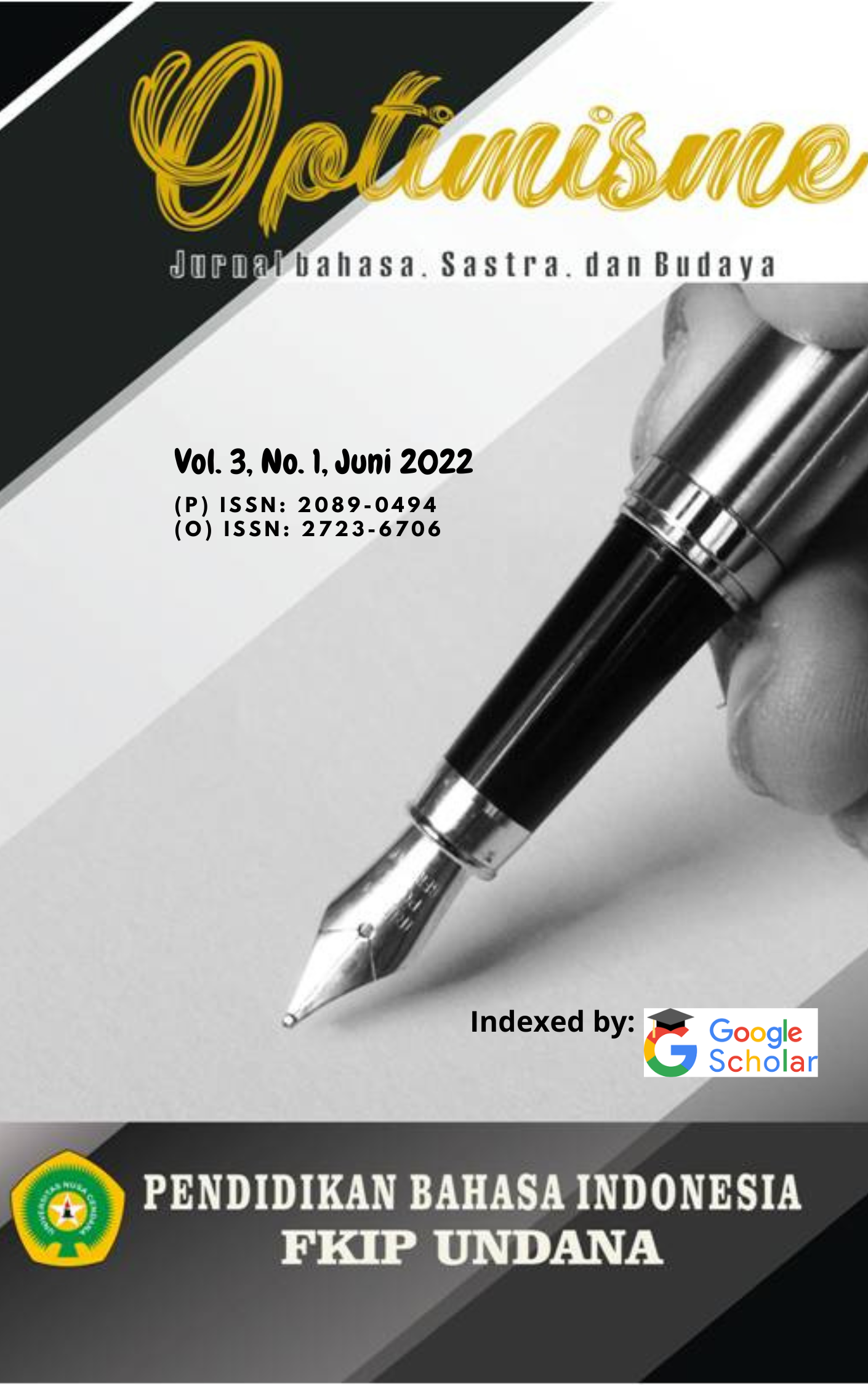FENOMENA AFIKS PSEUDO DALAM BAHASA INDONESIA DAN DAMPAKNYA TERHADAP DAFTAR ENTRI DALAM KAMUS BESAR BAHASA INDONESIA (KBBI)
Abstract
In Indonesian, there are a number of words which until now have been treated as derivative words but semantically their
meanings have no relationship with the meaning of the root word. The word is treated as a derived word only because the initial or
final syllable is similar to a prefix or suffix. The research problem is: "How is the semantic relationship and morphological
relationship between the main entry and pseudo-affixed words treated as derivative words in the Indonesian Standard Dictionary?"
This study aims to examine the congruence of the semantic relationship and the morphological relationship between the main
entry and pseudo-affixed words which are treated as derived words in the Indonesian Standard Dictionary. The method used in
this research is descriptive method. The main data source is the Indonesian Standard Dictionary. The theory used in this study is
the theory of structural morphology. The results show that there are eight words that have been treated as derivative words only
because the initial or final syllables have the same form with certain prefixes or suffixes but are semantically not related in
meaning to the meaning of the main entry.
 Hendrikus Jehane(1*)
Hendrikus Jehane(1*)



